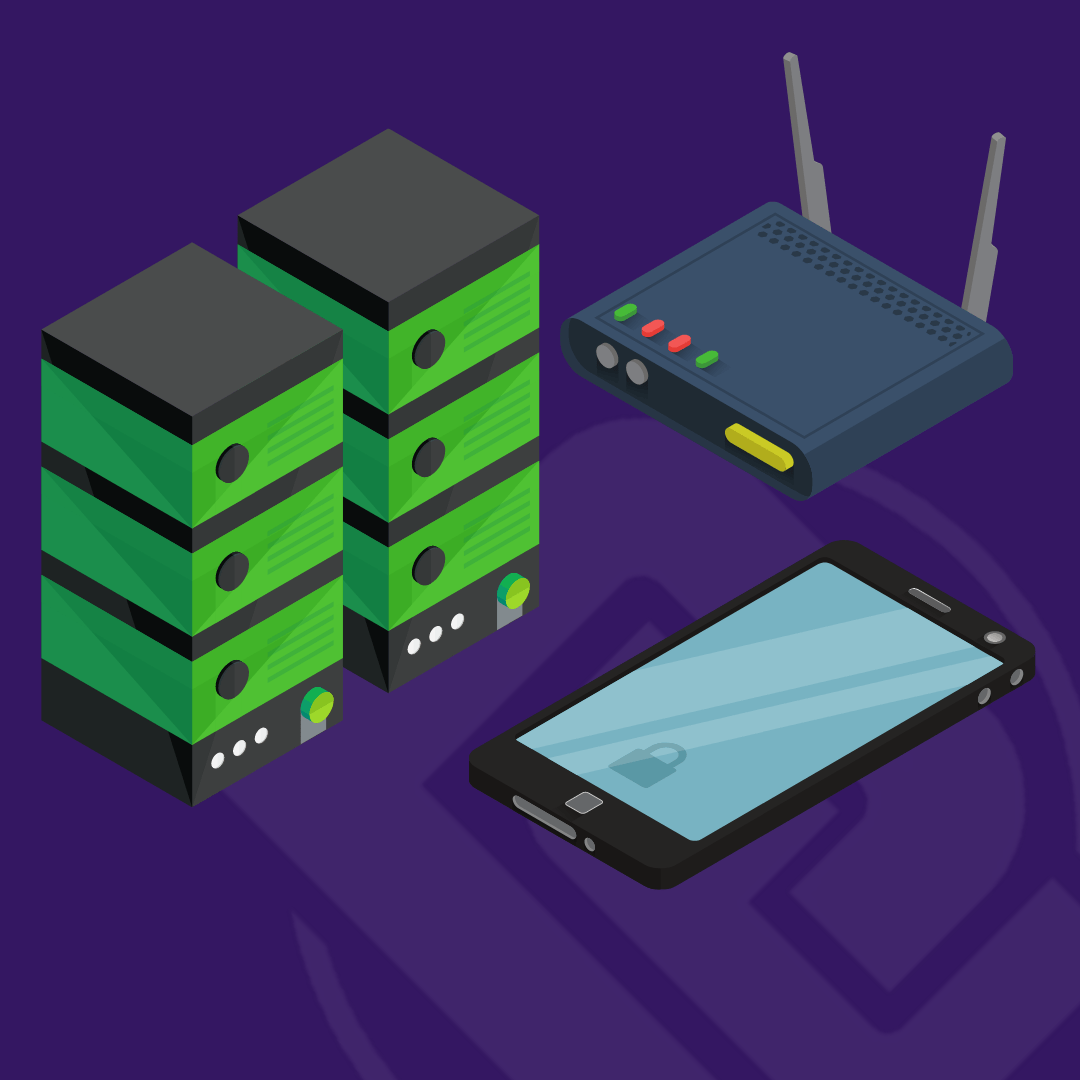If you’re a serious internet user, you’re eventually going to find yourself in a situation where you need to access a website or server repeatedly, perhaps for use cases like data scraping, price comparison, SEO monitoring, and others, without getting IP blacklisted or blocked by CAPTCHAs.
A proxy works by sending all of your outgoing data to the proxy server, which then sends it on to the destination server. The destination server receives data from the proxy and sends it back to the proxy server, sending it to your computer. This process allows you to send data through a third party without giving them your real location. It’s like a middleman between you and the server you’re accessing, effectively ‘laundering’ your IP address.
Datacenter, residential and mobile are three types of proxy servers that preserve your online reputation and anonymity, and each has its pros and cons. But how do you know which one works best for you?
Let’s take a closer look at the three different types of proxy servers.
What are datacenter proxies?
Datacenter proxies are dedicated cloud servers that private companies lease for the sole purpose of unblocking content & data in different locations.
You may be familiar with VPN providers such as Express VPN and Nord. If you have used their services before then, you are accessing the internet via a datacenter proxy.
This is ideal for their target demographics, who are typically mainstream internet users who want to access content that’s blocked in their country, such as YouTube if they’re located in China or access another country’s Netflix library.
What are the pros of using datacenter proxies?
Speed and cost–datacenter proxies take the lead in both areas, making them ideal for Netflix binging or torrenting at school or in the office.
They are fast because they are run on dedicated hardware specifically designed for this sole purpose, rather than someone’s personal device, which may not have the best hardware or connectivity.
They are often in advantageous locations such as close to undersea internet cables to offer unrivaled speeds. They are usually the cheapest choice.
What are the cons of using datacenter proxies?
So far, datacenter proxies sound ideal. Both the fastest and cheapest at the same time. Why would anyone even bother considering a residential or mobile proxy service if they are superior in both aspects?
There are very few cons of using a datacenter proxy. One of them is that the anonymity provided by these proxies isn’t as strong as it claims to be because it can easily be traced back to the datacenter’s location if someone was to do an investigation on your activity.
Datacenter proxies are very obvious and well-known and thus often blacklisted by servers that want to avoid getting overloaded by scrapers and the like. Unlike residential and mobile proxies, they don’t even attempt to appear organic. Rather than fly under the radar, they present an immediate red flag to any server with even the most rudimentary detection and countermeasures.
If you have any botting or automated activity in mind, such as bulk scraping, then it’s best to steer clear of datacenter proxies because even if they work one day, such as during a free trial, you’ll never know when they’ll–inevitably–be blacklisted, and you’ll be starting again from scratch.
The third downside to data center proxies would be that you would have a hard time finding a provider that covers many different countries. Most Datacenter Proxy providers focus on the USA, and a few would also offer up to 10-15 different countries from which you can use IPs. Because they are dependant on finding reliable data centers in each country, they are not geographically distributed well.
What is a residential proxy?
A residential proxy server is (ostensibly) set up and controlled by an individual owner, typically at a home or office. They are typically owned by ISPs and are registered as individually-owned in public databases.
Each residential proxy server is tied to a fixed location by the very nature being associated with an individual’s residence.
There are very few websites that block residential IP addresses, and they are becoming rarer. As such, residential proxies are a good choice if you want to access certain websites. However, it’s important to remember that not all proxy providers offer residential proxies. Before you subscribe to a proxy service, make sure that it’s the real deal, like those offered by ProxyEmpire.
What are the pros of using a residential proxy?
Residential proxies are the jack-of-all-trades, master of none of the proxies because they aren’t the fastest, cheapest, or most reliable option but score moderately in all three measures.
You can enjoy the reliability of connecting through a fixed physical location without the increased risk of ending up on a blacklist as you might with a datacenter proxy. Also, the moderate speeds and prices are adequate for most users without the need for the absolute best offered by datacenter proxies.
They are the perfect choice if you want a balanced service that’s solid in all areas and doesn’t suffer from any particular weakness. This is ideal for a user who needs the flexibility of using the service for multiple use cases rather than just one particular purpose, which another more specialist type of proxy may be more advantageous for.
What Is A Mobile Proxy?
A mobile proxy server is a type of proxy that’s usually set up on a 3G or 4G phone network. Mobile proxies provide an intermediate internet connection via an individual’s mobile device, usually not your own, that’s provided by a third-party service provider like ProxyEmpire.
Mobile proxies are typically smartphones or tablets or any portable device with a 3G or 4G SIM card and mobile data plan. More importantly, they are not devices sitting in a room gathering dust, dedicated as proxy servers, but real devices used by real everyday people, thus appearing as natural as possible and flying under the radar.
Because they are in use by everyday people, they are more comparable to residential proxies than datacenter proxies due to their organic appearance and activity. However, unlike residential proxies, mobile proxies are not tied to a physical location, and their whereabouts are constantly shifting and unreliable with lower session durations. In most cases, this won’t be an issue for the average user.
The Pros of Using Mobile Proxies
Like residential proxies, the main strength of mobile proxies is they are indistinguishable from natural users to the servers you are accessing them with. The ideal use case for a mobile proxy is for people who juggle multiple social media accounts and constantly log in and out of them.
For some social networks like Facebook, this is a cause of long-term frustration because you will inevitably trigger its user verification security system and be asked to verify your phone number, email address, birthday, or even identify friends in photos.
This is an even bigger problem when the profiles you’re managing are fake and have throwaway mobile numbers and email addresses attached to them. It starts to become a real headache when you need an active SIM card for every fake account you’re managing to keep them associated with separate devices, so they don’t appear suspicious.
A mobile proxy will mitigate this risk by keeping your IP addresses on constant rotation, avoiding the major red flag of logging into multiple accounts on the same IP. It’s no surprise that Facebook doesn’t like fake accounts and has developed sophisticated countermeasures to eradicate them.
Finally, the greatest strength of mobile proxies is they are the hardest to block due to their organic and constantly shifting nature.
TL;DR
Selecting the perfect proxy solution boils down to your specific needs and use cases. Datacenter proxies are dedicated cloud servers rented by private companies and are ideal for unblocking geolocation-based content like Netflix libraries. They offer unrivalled speed and low cost but are typically easy to detect and often blacklisted by servers.
Residential proxies provide more robust anonymity and are less likely to be blacklisted. However, they might not be as fast or inexpensive as datacenter proxies. Lastly, mobile proxies work through 3G or 4G phone networks and constitute handheld devices. They mimic natural user activity, making them practically indistinguishable and very hard to block.
If you’re handling multiple social media accounts, these proxies will keep your IP addresses in constant rotation, thereby avoiding suspicion. When looking for reliable proxy solutions, consider ProxyEmpire for your residential, mobile, or datacenter proxies requirements.




















